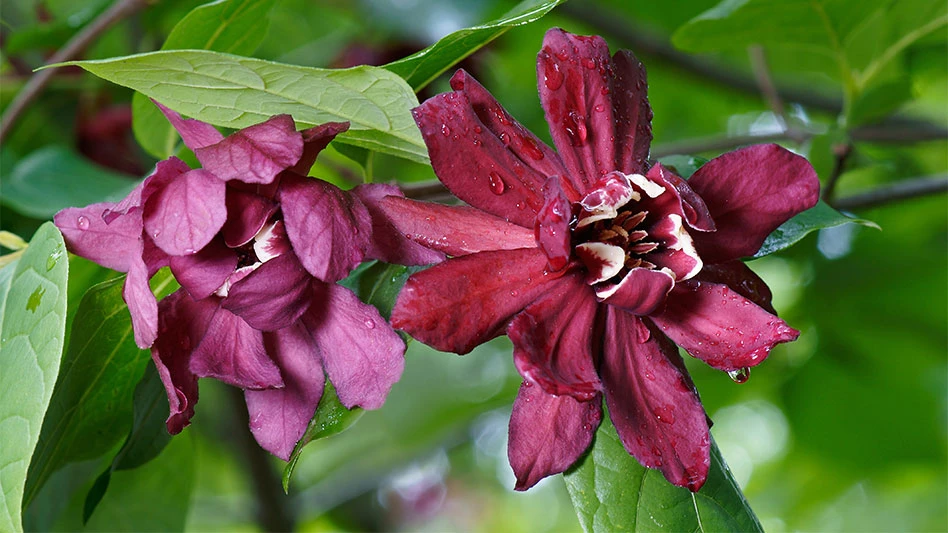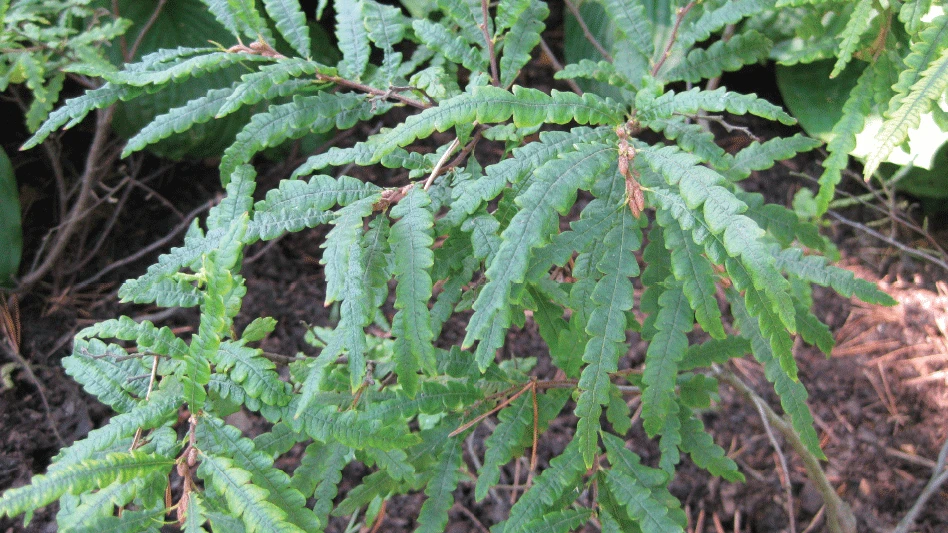 Imagine a plush landscape that never taps into city water, or one that only uses local plants and materials. Our sister publication, Lawn & Landscape, presented its 2012 Environmental Business Awards to companies that are committed to eco- friendly practices that provide long-term sustainability for their projects and clients. Two of the winners –WinterCreek Restoration and The Fockele Garden Co. – were chosen not only for their dedication to these principles but their ability to develop successful companies based on these practices. Learn how these companies’ environmentally focused landscaping choices have caught attention and led to business growth.
Imagine a plush landscape that never taps into city water, or one that only uses local plants and materials. Our sister publication, Lawn & Landscape, presented its 2012 Environmental Business Awards to companies that are committed to eco- friendly practices that provide long-term sustainability for their projects and clients. Two of the winners –WinterCreek Restoration and The Fockele Garden Co. – were chosen not only for their dedication to these principles but their ability to develop successful companies based on these practices. Learn how these companies’ environmentally focused landscaping choices have caught attention and led to business growth.
WinterCreek Restoration
Bend, Ore.
After Rick Martinson received a call that a local health insurance firm wanted a completely native, ecologically functional green roof built, he immediately started research.
He couldn’t find a single green roof based on the idea. He accepted the challenge. WinterCreek Restoration, where Martinson is president, has taken an ecological approach to landscaping for a decade. The company’s niche is using native plants to blend landscapes with natural surroundings. The goal of the green roof was to replicate the environment on the ground in a 15,000-square-foot section one story in the air.
WinterCreek and insurer ODS Cos. are located in Bend, Ore., home to a high desert climate that receives about 11 inches of rain a year. All of the materials came from within a 400-mile radius to design and build a truly native green roof.
 WinterCreek had to engineer native substrate that would maintain as much moisture as possible. Martinson, who is finishing his Ph.D. in ecology-based horticulture at Oregon State University, worked with professors to develop the perfect blend.
WinterCreek had to engineer native substrate that would maintain as much moisture as possible. Martinson, who is finishing his Ph.D. in ecology-based horticulture at Oregon State University, worked with professors to develop the perfect blend.
“The substrate was constructed of local pumice kitty-litter size and a blended compost that included mushroom compost, composted hemlock bark, locally produced compost from recycling centers, peat moss, etc.,” he said.
The final result was a blend of 50 percent organic matter and 50 percent pumice. The substrate, which varied from 8 to 28 inches in depth, an additional 3 inches of pumice (from a local source) and 42 native species rounded out the growing portion of the roof. The species included mountain mahogany, manzanita, sickle-keeled lupine, linear leaf fleabane, naked buckwheat and Idaho fescue.
“All of the plant material was propagated at our nursery from seed or cuttings collected within three counties in central Oregon,” he said.
The idea was to create a space that offered environmental benefits, was aesthetically pleasing for employees, controlled stormwater runoff and provided an ecological habitat for birds, pollinators and other organisms. To ensure that it is maintained, WinterCreek studies the colonization rate of mycorrhizal fungi on the roof and how effective and efficient it is in artificial environments.
“These fungi form symbiotic relationships between plant roots, soil particles, bed rock and other plants,” he said. “They are essential for the ecological functioning of native plant communities. Ninety-eight percent of the plants in the world are dependent on these associations. Reestablishing these organisms in created landscapes reduces the need for water and fertilizers, increases vigor and results in physiological change in how plants function, especially under stress.”
For more: http://wintercreekrestoration.com
The Fockele Garden Co.
Gainesville, Ga.
Five years ago a client asked The Fockele Garden Co. to install a rainwater harvesting system. It was the first request of its kind for the Georgia company. Now, 75 percent of The Fockele Garden Co.’s projects include sustainable elements that conserve water, build attractive environments and eliminate waste. The successful approach has been highlighted with regional and national awards.
“If you slow down and look around at what our communities look like now, it’s obvious that we’ve done a lot of damage and it’s obvious there are things that need to be fixed,” said company founder Mark Fockele.
 “We have too much pavement, way too much stormwater runoff; we have hot, dry, unshaded parking lots that go on forever. These are just not pleasant environments. That’s one of the reasons we’ve been inclined to do this. Another reason is we have encountered clients occasionally who have pushed us into tackling more projects of this kind and getting involved in more sustainable gardening techniques.”
“We have too much pavement, way too much stormwater runoff; we have hot, dry, unshaded parking lots that go on forever. These are just not pleasant environments. That’s one of the reasons we’ve been inclined to do this. Another reason is we have encountered clients occasionally who have pushed us into tackling more projects of this kind and getting involved in more sustainable gardening techniques.”
The Fockele Garden Co. places a large emphasis on rainwater harvesting and stormwater management techniques to decrease erosion and supply irrigation. For example, the company’s Smartville project provides a local elementary school a sustainable garden and teaching tool. A rainwater harvesting system was installed to collect water used two or three times a summer to perk up plants. The school hasn’t tapped the city water for irrigation in three years.
The same garden also uses on-site compost to build soil health. All of the organic waste – sticks, limbs, tree trunks – is composted to eliminate adding to the landfill. Also, many of its components were designed to teach students about nature.
“The garden has a lot of bold colors and bold textures and weird goofy plants that kids really like,” Fockele said. “We think that we’re giving these kids an atmosphere that is likely to help them develop an appreciation for nature and love of the outdoors.”
For more: www.fockelegardencompany.com

Explore the January 2013 Issue
Check out more from this issue and find your next story to read.
Latest from Nursery Management
- How impending tariffs and USDA layoffs impact the horticulture industry
- Shifting the urban environment
- These companies are utilizing plastic alternatives to reduce horticultural waste
- How to create a sustainable plant nursery
- Lamiastrum galeobdolon ‘Herman’s Pride’
- One of rarest plants on earth: Tahina spectabilis
- Leading Women of Horticulture: Angela Labrum, Bailey Nurseries
- Get to know Pat Reilly with NewGen Boxwood and the American Boxwood Society






